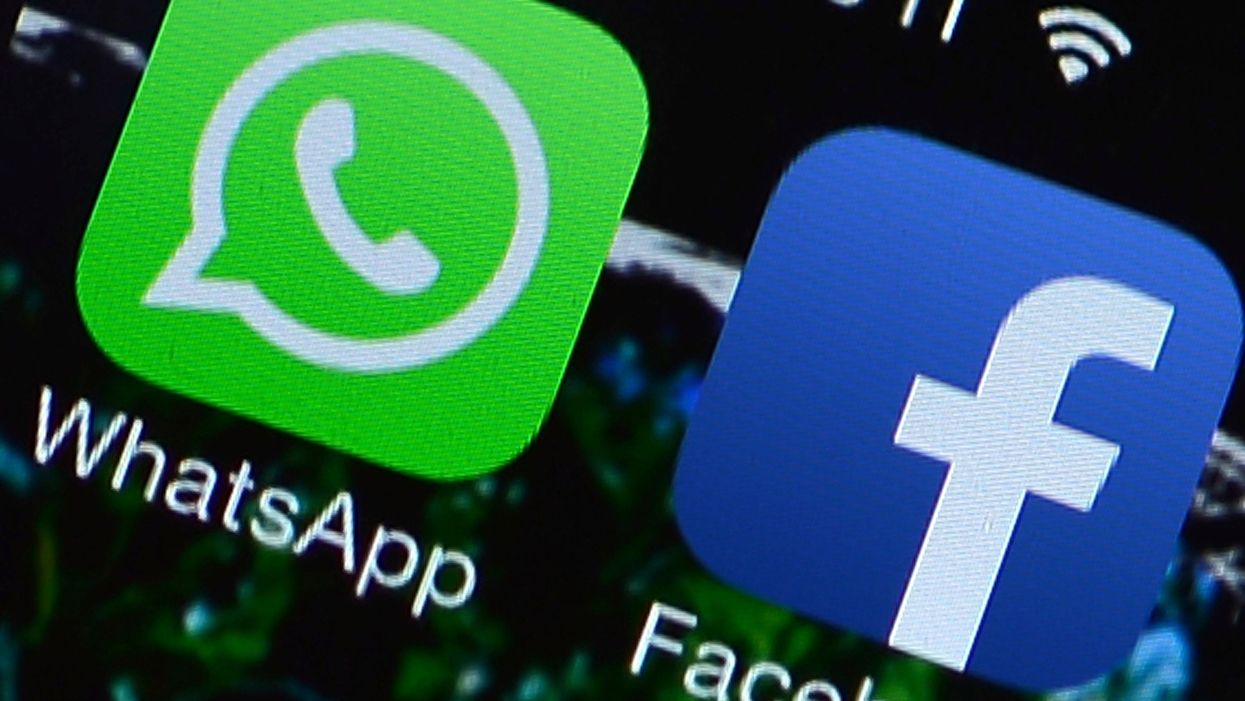Science & Tech
Danielle Sinay
Aug 17, 2021
On Sunday, the Taliban seized control of Afghanistan’s capital city Kabul, after rapidly advancing across the country amid the dramatic fall of its western-backed government.
As Taliban forces expeditiously regained power, VICE reports that the fundamentalist group used WhatsApp, a messenger app owned by Facebook, to communicate with and earn support from Afghan citizens.
While a WhatsApp spokesperson declined to answer several of the outlet’s specific questions regarding the Taliban’s use of their app, WhatsApp did assert that it abides by U.S. sanctions law and “will take action” should it detect sanctioned people or organisations using the platform. Facebook has also banned all Taliban-related content on Facebook, Instagram and Whatsapp, as reported by Fast Company, though monitoring Whatsapp will likely present a challenge.
A WhatsApp text message from Taliban spokesperson on my phone pops up, reads: "Islamic Emirates of Taliban is sadd… https://t.co/wTkj6uL3Oa— 47 Mustafa מוסטפא (@47 Mustafa מוסטפא) 1542774434
The WhatsApp platform uses end-to-end encryption, which by definition, prohibits anyone but the communicating parties from viewing their correspondence. The company also confirmed to VICE: They cannot, in fact, see any its users private messages.
“As a private messaging service, we do not have access to the contents of people’s personal chats; however, if we become aware that a sanctioned individual or organization may have a presence on WhatsApp, we take action,” the spokesperson said.
The Washington Post reported that Taliban forces contacted Kabul residents via WhatsApp, writing “we are in charge of security for Kabul.” The group also provided numbers to call in the event citizens should witness any “looting” or “irresponsible behavior.”
Facebook designates the Taliban a terrorist group and bans it and content supporting it from its platforms. But Tal… https://t.co/aoNQZKMG2g— Reuters (@Reuters) 1629163280
“The Islamic Emirate assures you that no one should be in panic of feeling fear,” another message read, according to the article. “Taliban is taking over the city without fighting and no one will be at risk.”
Apparently, extremist groups utilising social media and communication apps is to be expected. As Vice pointed out, Iran’s government communicates with the West via Twitter and Instagram.
“They’ve been using the various platforms for years,” Peter Singer, a senior fellow at the New America Foundation and an expert in technology and war, concurred. “Many think of the Taliban as archaic, but they have leveraged everything from social media to drones. We build it, they use it.”
indy100 contacted Facebook for clarification, asking how they track the Taliban’s correspondence when its platform is encrypted. A WhatsApp spokesperson replied with the following: “We’re obligated to adhere to U.S. sanctions laws. This includes banning accounts that appear to represent themselves as official accounts of the Taliban. We’re seeking more information from relevant US authorities given the evolving situation in Afghanistan.”
Top 100
The Conversation (0)














